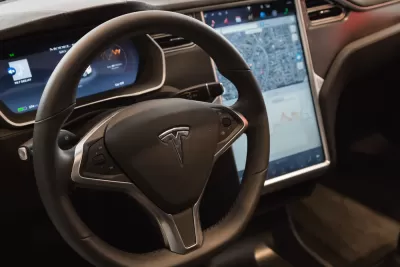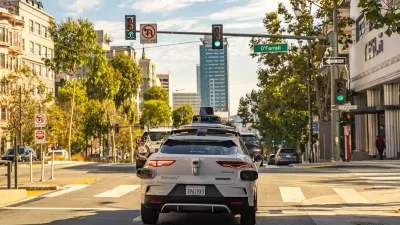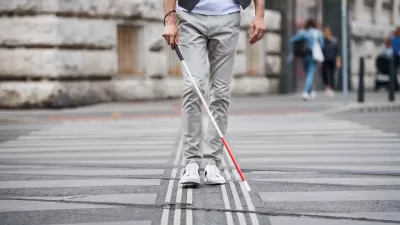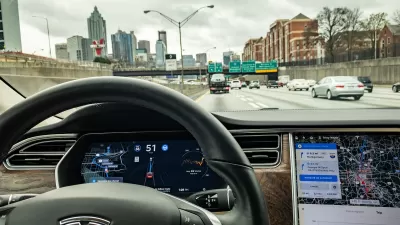Some Tesla autonomous modes direct the vehicle to engage in dangerous and illegal behaviors, prompting calls for increased regulation of autonomous vehicle tech.

According to an article by Streetsblog's Kea Wilson, Tesla is equipping its vehicles with a feature that lets drivers choose "how aggressively the vehicle applies many of its automated safety features on U.S. roads," essentially allowing the car to break common traffic laws under its "assertive" driving mode.
The rollout went largely unnoticed by street safety advocates until a Jan. 9 article in The Verge, when journalist Emma Roth revealed that putting a Tesla in 'assertive' mode will effectively direct the car to tailgate other motorists, perform unsafe passing maneuvers, and roll through certain stops ('average' mode isn’t much safer). All those behaviors are illegal in most U.S. states, and experts say there’s no reason why Tesla shouldn’t be required to program its vehicles to follow the local rules of the road, even when drivers travel between jurisdictions with varying safety standards.
The revelation concerns road safety advocates who say the company is endangering riders and pedestrians by allowing the cars to roll through stops and red lights. Wilson attributes this in large part to the fact that "by and large, U.S. law tends to favor penalizing individual drivers for breaking the law, rather than penalizing car manufacturers whose vehicle designs make breaking those laws easy," pointing to the lack of regulations for vehicles that can travel at speeds far beyond any legal speed limits.
Meanwhile, a complicated regulatory landscape puts autonomous vehicle technology in a challenging gray area, with some states attempting to pass laws that hold carmakers responsible for safety failures, while others are supporting more autonomous vehicle testing on their streets with statutes that shield manufacturers from liability.
FULL STORY: Why Tesla Can Program Its Cars to Break Road Safety Laws

Alabama: Trump Terminates Settlements for Black Communities Harmed By Raw Sewage
Trump deemed the landmark civil rights agreement “illegal DEI and environmental justice policy.”

Study: Maui’s Plan to Convert Vacation Rentals to Long-Term Housing Could Cause Nearly $1 Billion Economic Loss
The plan would reduce visitor accommodation by 25% resulting in 1,900 jobs lost.

Planetizen Federal Action Tracker
A weekly monitor of how Trump’s orders and actions are impacting planners and planning in America.

Restoring Northern India’s Himalayan ‘Water Temples’
Thousands of centuries-old buildings protect the region’s natural springs and serve as community wells and gathering places.

Milwaukee to Double Bike Share Stations
Bublr Bikes, one of the nation’s most successful, will add 500 new e-bikes to its system.

DC Extends Application Window for Outdoor Dining Permits
District restaurants will have until the end of November to apply, but businesses with permits in rush hour parking lanes must end operations on July 31.
Urban Design for Planners 1: Software Tools
This six-course series explores essential urban design concepts using open source software and equips planners with the tools they need to participate fully in the urban design process.
Planning for Universal Design
Learn the tools for implementing Universal Design in planning regulations.
Caltrans
Smith Gee Studio
Institute for Housing and Urban Development Studies (IHS)
City of Grandview
Harvard GSD Executive Education
Toledo-Lucas County Plan Commissions
Salt Lake City
NYU Wagner Graduate School of Public Service





























